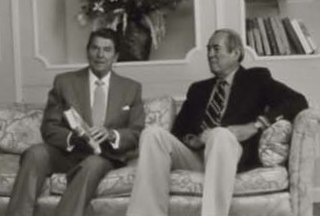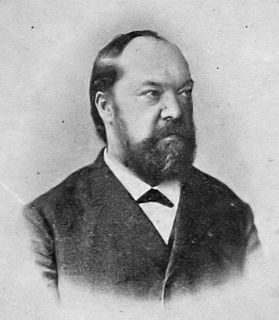A Quote by Friedrich August von Hayek
The importance of our being free to do a particular thing has nothing to do with the question of whether we or the majority are ever likely to make use of that particular possibility. To grant no more freedom than all can exercise would be to misconceive its function completely. The freedom that will be used by only one man in a million may be more important to society and more beneficial to the majority than any freedom that we all use.
Related Quotes
We must show that liberty is not merely one particular value but that it is the source and condition of most moral values. What a free society offers to the individual is much more than what he would be able to do if only he were free. We can therefore not fully appreciate the value of freedom until we know how a society of free men as a whole differs from one in which unfreedom prevails.
In the end, more than freedom, they wanted security. They wanted a comfortable life, and they lost it all – security, comfort, and freedom. When the Athenians finally wanted not to give to society but for society to give to them, when the freedom they wished for most was freedom from responsibility, then Athens ceased to be free and was never free again.
Know, then, that now, precisely now, these people are more certain than ever before that they are completely free, and at the same time they themselves have brought us their freedom and obediently laid it at our feet. It is our doing, but is it what you wanted? This sort of freedom?' Again I don't understand', Alyosha interrupted, 'Is he being ironic? Is he laughing?' Not in the least. He precisely lays it to his and his colleagues' credit that they have finally overcome freedom, and have done so in order to make people happy.
"Once there, always there", would give you less freedom than you recently enjoyed, but more security. Security not in the sense of safety from terrorists, burglars, or pickpockets... but security in the sense of knowing where you are, who you are, on what kind of future you can count, what will happen, whether you will preserve your position in society or whether you will be degraded and humiliated - this sort of security. This sort of security for many, many people - a rising number of people - looks at the moment more attractive than more freedom.
The sense that a man is serving a Higher than himself, with a service which will become ever more and more perfect freedom, evokes more profound, more humbling, more exalted emotions than any thing else in the world can do. The spirit of man is an instrument which cannot give out its deepest, finest tones, except under the immediate hand of the Divine Harmonist.
We will freedom for freedom’s sake, in and through particular circumstances. And in thus willing freedom, we discover that it depends entirely upon the freedom of others and that the freedom of others depends upon our own. Obviously, freedom as the definition of a man does not depend upon others, but as soon as there is a commitment, I am obliged to will the liberty of others at the same time as my own. I cannot make liberty my aim unless I make that of others equally my aim.
What is the use of freedom of the press if the government is in possession of all the printing presses, what does freedom of assembly avail if all the meeting places belong to the government? In a society in which there is no more personal and economic freedom, even the freest form of the state cannot make political independence possible.
Our submission to general principles is necessary because we cannot be guided in our practical action by full knowledge and evaluation of the consequences. So long as men are not omniscient, the only way in which freedom can be given to the individual is by such general rules to delimit the sphere in which the decision is his. There can be no freedom if the government is not limited to particular kinds of action but can use its powers in any ways which serve particular ends.
































